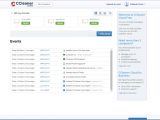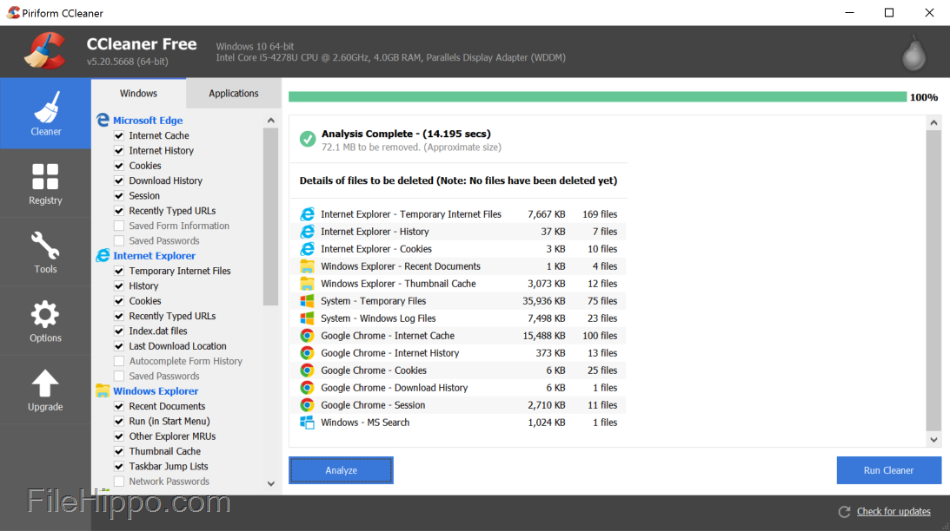

One limitation here is that you cannot add new rules using the excellent CCEnhancer application. Some options have been removed there is for instance no startup manager anymore but that is likely because you find it listed under software now in the cloud interface. This includes not only the cleaning options but also other tools such as the Registry Cleaner or Drive Wiper that come with CCleaner. The CCleaner tab lists the same option that you get when you run CCleaner directly on Windows PCs. You find several interesting options listed under Software including options to manage startup items and uninstall software on the selected computer system. Available for selection are popular apps like 7-Zip, Firefox and Notepad++ as well as options to install custom software using Dropbox. There is even an add software option to install custom software directly from the cloud. The information are comprehensive and similar to what Speccy reports when it is run on the PC. Software on the other hand lists information about the operating system, running processes, startup items and installed software. The core difference between the two is that the first requires input of username and password while the second does not (hand the second to your parents, family members or friends whose computer systems you manage). You may download account-specific or account-independent installers. Once that is out of the way you need to download installers for each computer system that you want to control using CCleaner Cloud. It may take a while before you get the invitation as the system is still invitation-based currently (it took a couple of hours in my case). The first thing you need to do to get CCleaner Cloud working is to create an account on the official site. Access requires a modern web browser only but no software installation on the control system so that you can control Windows PCs from Linux, Macs or other operating systems as well using CCleaner Cloud. One of the core differences between regular CCleaner versions and CCleaner Cloud is that the control center has been moved to the web so that you can control one or multiple computer systems remotely. Do not close this icon or you will disable automatic monitoring and cleaning.Piriform, the makers of popular applications such as CCleaner and Recuva have released a cloud-based version of CCleaner recently called CCleaner Cloud. When you enable automatic monitoring, CCleaner will continue to run in the background and you’ll see an icon in the system tray.

Similarly, CCleaner can monitor your PC and, every so often, detect whether it will benefit from a clean and either clean it automatically, or ask you if you want to run a clean. For example, every time you close an Internet browser, CCleaner can perform an automatic clean of browser files and settings, or it can ask you if you want to run a clean. Starting with the version 4.18, CCleaner enables you to set up automatic monitoring and cleaning for Internet browsers and your PC in general. But the best part is that it's fast (normally taking less than a second to run) and FREE! Additionally it contains a fully featured registry cleaner. It also cleans traces of your online activities such as your Internet history. It removes unused files from your system - allowing Windows to run faster and freeing up valuable hard disk space. CCleaner is a freeware system optimization, privacy and cleaning tool.


 0 kommentar(er)
0 kommentar(er)
